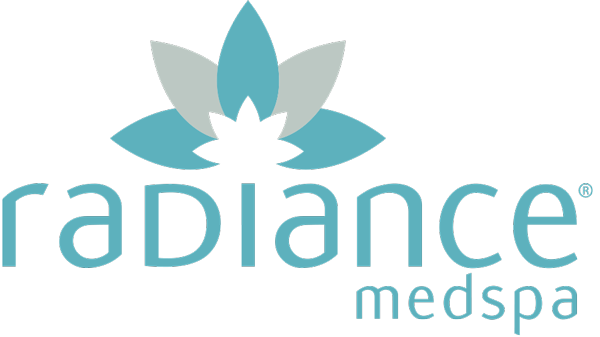Despite acne being the most common skin issue in the nation — up to 50 million Americans struggle with it — there's yet to be a solution that can work for everyone. While some mild cases can be effectively treated with skin-care products like cleansers, toners, and creams, the breakout journey of many people with moderate and severe cases can be long.
Many of those with acne end up turning to lasers, prescription topicals, or oral medications like Isotretinoin (colloquially known as Accutane), which can carry a long list of harsh side effects and hefty price tags. And many people — due to skin tone, age, or other medical issues — aren't even candidates for these treatments in the first place.
But in March 2022, the U.S. Food and Drug Administration (FDA) approved a breakthrough in-office treatment that may change the way we treat acne for good: AviClear. Here's everything you need to know about the game-changing new laser.
What is Aviclear, and how does it work?
AviClear is the first and only FDA-cleared energy device for the treatment of mild to severe acne. The laser is the first of its kind, as it can be used to treat all skin tones, no matter how minor or major a patient's breakouts may be. How? By selectively targeting and suppressing the sebaceous glands, which produce the sebum (the oily substance on the skin) that can cause and intensify breakouts.
"Overproduction of sebum by the sebaceous glands is the leading cause of acne," explains Dendy Engelman, MD, a board-certified dermatologist in New York City. As dead skin cells and pollution mixes with the skin's sebum, pores become clogged and can create and promote a cycle of breakouts. In a series of three 30-minute sessions — once per month for three consecutive months — AviClear uses a 1726nm wavelength (a type of laser frequency) to treat these glands so they produce less sebum. That, in turn, makes your current and future breakouts shorter, less intense, and more infrequent.
Get Started!
Schedule your complimentary consultation today!
"Physicians and patients have long sought a modern alternative to the acne pills, peels and topicals that have been static for nearly 30 years," said David Mowry, CEO of Cutera, AviClear's parent company, in a press release. "Developed with extensive physician and patient input, AviClear was created to redefine the treatment of acne — all without a prescription.”
How long do AviClear results last?
In addition to reducing existing acne, clinical trials show that future breakout episodes are shorter, less intense, and more infrequent following the AviClear treatment. In clinical studies, 91 percent of patients responded to treatment and 80 percent saw at least half of their acne clear, and nine out of 10 patients were satisfied or very satisfied with their results one month after treatment.
David J. Goldberg, MD, a board-certified dermatologist in Hackensack, New Jersey, participated in the studies that led to AviClear's FDA approval and says he's seen lasting results immediately following the laser treatment's standard three sessions — and beyond.
"Over 90 percent of people were [looking] better three months after the third treatment. We now have six-month results on that group, and all are even better at six months after the third treatment," he says. "We have some early data at nine months that shows the results are staying."
That said, it won't be a one-and-done situation for absolutely everyone who tries it. "Much like we have seen with Accutane, there will be some people who will need further treatment, [but without] the same side effects."
Who's a candidate for AviClear?
Without exaggeration: almost everyone. Unlike many other lasers, AviClear is suitable for all skin tones, thanks to its breakthrough technology: rather than targeting and aversely affecting the melanin found in deeper skin tones, AviClear seeks out the source of the sebum that's causing and worsening breakouts.
"The unique wavelength (1726nm) is only absorbed by the sebaceous gland — the culprit of acne — not by pigment," says Dr. Goldberg, which is the reason why this laser won't cause hyperpigmentation in patients with deeper skin tones. "In our FDA study and in real life, we treated and are treating the lightest and darkest of skin colors with equal benefits."
Age isn't a factor either. Dr. Goldberg says that any body with acne will respond to the treatment, and according to Dr. Engelman, it can be a generational solution.
"One of the impressive things about AviClear is that it's FDA-cleared for the treatment of mild, moderate, and severe acne," she says. "That means a mom can take their teenager in for treatment of their severe acne, and at the same time get herself treated for mild or moderate hormonal acne that some of us suffer from when we are old enough to have teenage children."
It's also a promising alternative for those who have already tried Isotretinoin, or prescription antibiotics, and are now seeking a less invasive alternative for their more persistent symptoms. "Although the laser is FDA approved for mild, moderate and severe acne, it is the moderate and severe group (the group that takes chronic antibiotics and/or Accutane) that is [most] quickly switching over to AviClear treatment," says Dr. Goldberg.
Are there any risks or side effects?
During treatment, patients may notice a slight snapping sensation, and the laser's skin cooling and sensory control mechanism maintains the skin's temperature so the treatment is more comfortable. Aside from that, though, side-effects are virtually nil.
"The clinical trials did not show any reportable adverse events with the treatment," says Dr. Engelman. "Some people might get an acne flare-up immediately following the procedure — meaning you may see some new pimples pop up the days following the treatment — but with each treatment that should lessen, and following the third treatment, patients will really see significant clearance in their skin." This ease of treatment is one reason this laser is such a[ADDED: a] breakthrough for those constantly battling acne symptoms.
"AviClear is great for anyone who suffers from acne and does not want to spend the time going to the dermatologist monthly, going on harsh drugs, or having the side effects from being on an oral medication," confirms Dr. Engelman.
What is aftercare like?
AviClear has no down time, and you can resume your day as planned following treatment. Your skin-care routine won't need to change much, either.
"Following the treatment you will need to make sure to put sunblock on — you should be doing that anyway! — and avoid occlusive agents like Vaseline or Aquaphor post-treatment," instructs Dr. Engelman.
How much does AviClear cost?
As the laser is new to market, will become available to providers over the course of 2022. Both doctors and potential patients can check aviclear.com for updates on availability near them. When it is a more widely available option, as with most in-office skin treatments, the cost of treatment will depend on location, practice, and provider.
Dr. Goldberg says that at his practice (which already has the AviClear machine in its office) the typical series of three monthly treatments costs $3,000. Pricy, yes, but Dr. Engelman confirms that the investment may eventually save you money on your acne journey.
"In the long run, it may actually be less expensive when you consider how much people who suffer from acne spend on special wipes, gels, creams, and facials, not to mention [the cost of] travel to and from dermatology visits, copays, or cash payments for frequent visits and bloodwork," she says.
Read article here.

